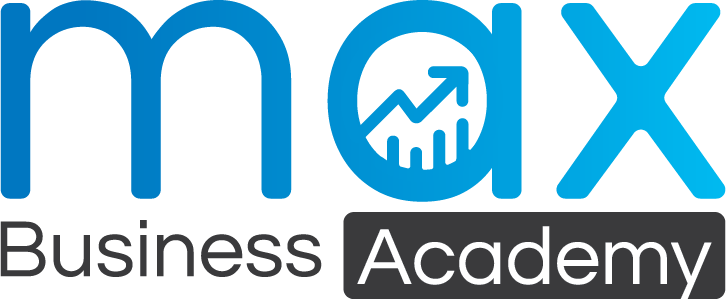Modern technology and software developments have a big impact on how we run a business. Processes have become easier because there’s a software program to help manage every aspect of a business. For example, you can subscribe to accounting software to keep track of your earnings and expenses. You can download or purchase CRM software to keep track of all your customers and business connections. If you use these software tools and programs, your business will be more productive.
What is CRM?
CRM stands for Customer Relationship Management. It’s a sophisticated software platform that allows you to store and organise all of your customer information. This software platform comes in various forms so you can choose something that is best-suited for your business. For example, if you’re a mid-sized or large-scale business, you can use a sophisticated CRM platform like Infusionsoft.
If you’re a smaller business, you can use platforms like Mail Chimp that are reasonably-priced or free of cost. That will help you manage customer data effectively without straining your finances. It’s a good idea to invest in a secure and reliable CRM platform as it would help you keep track of all your customers and their interactions with you.
Why do you need CRM?
Business owners think about each expense carefully in order to remain within their budget; so many of them are reluctant to spend their money on new software, especially one that requires a subscription like a CRM platform. Here are some reasons why these systems are well worth the investment:
#1 Capturing all your leads
Before CRM was introduced, people stored business cards in card decks and manually scrolled through the deck every time they needed to contact someone. Needless to say, this took a lot of time and it slowed down productivity. On a CRM platform, you can store all of your contact information in one place and can easily search for a list of thousands of customers in a fraction of a section.
The CRM system allows you to capture and store all leads and helps you improve your sales. Without CRM, your customer data will be disorganised and scattered. That will place a burden on your sales and marketing team.
#2 Recording customer conversation details
CRM doesn’t just store your customer contact information, but it also allows you to add notes and observations. That can have an impact on all future communications with your customers. For example, if your customer mentions a preference for a particular product or mentions their partner’s birthday in a conversation, you can make note of it in your CRM database. You can use this information in your marketing efforts or in future conversions, which will impress your customers. People like to develop personal connections with brands and will communicate more openly with you if you remember personal details they mentioned before.
CRM software allows you to keep track of all this personal information as well so you can send birthday or anniversary greetings to your customers or tailor your marketing programs according to their preferences. Once you establish a good rapport with your customers, it’s easier to convert them and make a sale.
#3 Automation
Automation is one of the biggest advantages of CRM software platforms because you don’t need to spend time on repetitive tasks. An efficient CRM platform will allow you to schedule emails, set automatic responses, send SMSs, remind you to contact customers at a set time, etc. Different platforms offer different levels of automation so you need to examine your options carefully before you choose.
Mail Chimp, for example, only allows you to automate email responses and to send newsletters on a predetermined schedule. However, there are other platforms that are much more sophisticated and allow you to automate a number of things, including responses to customer actions. For example, if a customer has subscribed to your newsletter, the CRM will automatically send them a welcome email and start sending them regular newsletters on a schedule.
#4 Follow-up
Your sales team may be handling dozens of prospective customers every day and many of these prospects might ask them to call later and provide a specific time. You can’t expect your sales team to remember all the details for all the calls they make. But you can expect your CRM platform to. The sales team can enter the details into the CRM database and move on. The software will remind them to make the follow-up call at the scheduled time.
If you keep track of the follow-up schedule without the CRM software, you’re likely to forget a few names on the list and lose interested, partially-qualified leads. Sales professionals can also add notes regarding the previous call, next to the client information. This will allow them to start off where they left the previous conversation instead of going through the entire sales pitch once again.
Follow-up is an essential aspect of the sales process because it takes several conversations to turn an interested prospect into a converted customer. Many businesses suffer from poor sales volume because they don’t have a proper follow-up procedure in place. You don’t always need to call, because even emails or SMS’ can be effective.
#5 Lead nurturing
We live in a world of intense competition and information overload. Customers are exposed to different brands, new information, and a number of effective marketing campaigns every day. It’s important to keep your customers engaged and nurture the leads effectively. Customers need to be reminded of your presence regularly but you need to make sure you’re not disruptive. The best way to achieve the balance is to provide information and interesting content on a regular basis. You can program your CRM platform to send lead nurturing emails and content at regular intervals.
The CRM platform won’t create the content for you, but it will ensure your content reaches your customers on time. Timing is just as important as the quality of the content because your prospects should have some time on their hands to read or watch what you send them.
You can also program some CRM platforms to send out emails to people who have recently been promoted or make more money. You can also isolate a group of prospects looking to hire employees and send them tailored emails and marketing material. All of this information allows you to tailor your marketing campaign accordingly and make it more effective.
#6 Tracking return on investment
Efficient and sophisticated CRM platforms allow you to track your investment in marketing and see the ROI. Modern marketing techniques are very effective but they’re also a drain on the finances. If you don’t keep track of your expenses, you can spend more than you need to for very little return on your investment. You need to keep an eye on all your marketing campaigns and check how many resources they consume and how much returns they offer.
A great CRM platform can help you keep track of your marketing campaigns, see what works and what doesn’t. The CRM platform will allow you to examine the history of your interaction with converted customers. You’ll be able to see where they came from, which campaign pulled them in, how the sales team managed to convert them, and other such information. You can use this information to create more efficient campaigns in the future.
Sophisticated CRM systems allow you to enter your investment data and determine the acquisition costs. You can calculate the cost per lead, cost per client, and the lifetime value of the client. This data can help you with your future marketing campaigns and ensure you have the best possible returns on your investment.
#7 The value of your business
This might seem like an odd benefit- how exactly can CRM software improve the overall value and worth of the business?
- While products and services bring money into the business, customers are your most important assets. CRM helps you gain more leads and nurture them into becoming customers. A business with a well-established customer base is more valuable than a business without one.
- If you have a CRM system with customer data in place, you will have a reliable lead generation system as well. Even if you lose most of your customers, the lead generation system will bring in more and help you stay afloat.
- The CRM also helps you maintain an accurate and up-to-date database of your customers and prospects. That will also increase the value of your business because it usually takes years to collect a substantial database of customer information.
If you intend to sell your business in the future, you should have a good CRM system in place. Your potential buyers won’t have to start from scratch and will have an established customer base to tap into. Most prospective business owners will pay more to purchase businesses with good CRM systems.
As you can see, a CRM platform is well worth the investment. You just need to find one that fits into your budget and still provides all the features you need.
About the Author
Ben Fewtrell is a sought-after Business Coach, Keynote Speaker and trainer who has featured in Virgin’s Inflight Magazine and Entertainment Portal, SKY Business and “Secrets of Top Business Builders Exposed”. He is also the host of the popular Business Brain Food Podcast where he interviews leading experts on anything and everything business.









